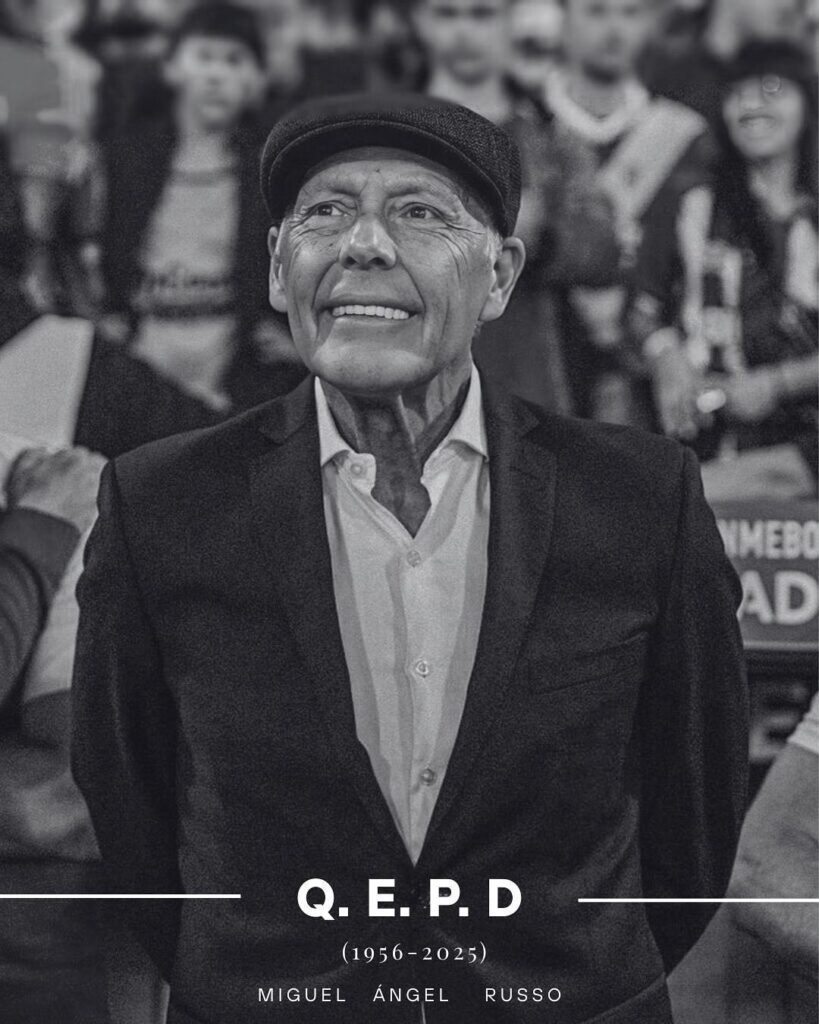Argentine and South American football are in mourning following the death of legendary manager Miguel Ángel Russo, who passed away on Wednesday at the age of 69 after a long and courageous battle with cancer.
Russo, who was in his third spell as the manager of Boca Juniors, leaves behind a legacy defined by his humility, resilience, and knack for achieving success at some of the continent’s most challenging clubs.
This piece explores the profound impact Russo had on the sport, detailing his most significant achievements from his playing days at Estudiantes to his continental triumph with Boca Juniors and his emotional, final years in management, which he refused to let his illness cut short.

His passing creates a profound void on the touchline, where his calm demeanor and strategic intelligence were an old-school symbol of Argentine football.
The Architect of Boca’s Last Continental Glory
Miguel Ángel Russo’s career, spanning nearly four decades on the touchline, delivered multiple championships but will be forever etched in the history books for a single, colossal achievement: leading Boca Juniors to the 2007 Copa Libertadores title.
Russo took the reins at Boca at the end of 2006, succeeding Ricardo La Volpe, and immediately set about integrating a new generation of talent with established stars. The team he molded, featuring the young, brilliant Ever Banega and a host of other emerging talents, swept through the Copa Libertadores that year, culminating in a spectacular 5-0 aggregate victory over Brazilian side Grêmio in the final. This triumph secured Boca’s sixth, and to date, last Copa Libertadores trophy, a feat that cemented Russo’s status as a legend among the Xeneize faithful. His success demonstrated his rare ability to handle the enormous pressure of managing one of the world’s most demanding clubs.
Beyond Boca, Russo’s coaching journey was a testament to his tactical flexibility and his talent for team building. He secured his first top-flight title with Vélez Sarsfield in 2005 and clinched the Argentine league again with Boca Juniors in 2020. Perhaps even more telling of his character was his deep bond with Rosario Central, whom he managed on five separate occasions, twice saving them from relegation and leading them to the League Cup in 2023. This dedication to his clubs, especially those in need of revival, earned him respect that transcended fierce inter-club rivalries.
Read More: Dean Huijsen Leaves Spain Camp Due to Fitness Concerns; Aymeric Laporte Called Up
A Man of Resilience and Quiet Dignity
Russo’s later years in football became an incredible display of professional dedication and personal resilience. In 2017, while coaching Colombian club Millonarios, he was diagnosed with prostate cancer. In a truly moving demonstration of his fighting spirit, he chose to remain on the bench, managing a championship victory just one day after undergoing chemotherapy.
He returned to the Boca Juniors dugout for a third, emotional spell in June 2025, continuing to work despite the constant challenges to his health. His final match in charge was a 2-2 draw on September 21, where he was visibly frail but still on the touchline, a silent yet powerful image of his unbreakable commitment to the game. Russo’s last public words on his health were characteristic of his selfless nature, choosing to redirect attention away from his personal suffering to focus on the future of the club.
His passing marks the end of an era for Argentine football. A defensive midfielder for Estudiantes de La Plata for his entire playing career (from 1975 to 1988), Russo leaves behind a legacy of championships, promotions, and, most importantly, the image of a great human being. He was a mentor to players like Ever Banega, Leandro Paredes, and Valentín Barco, and a man who, in his own words, was deeply moved by the passing of his friend, Diego Maradona, in 2020.
Now, his name joins the annals of Argentine football legends.
May he rest in peace.


